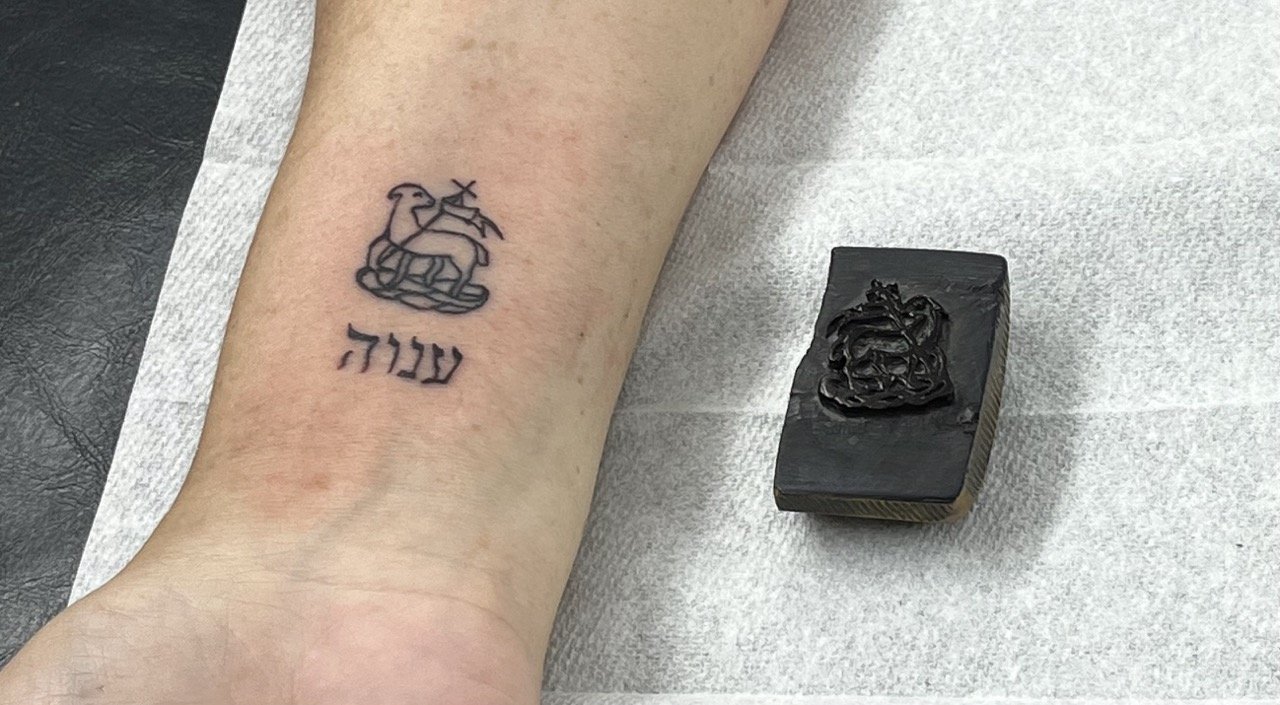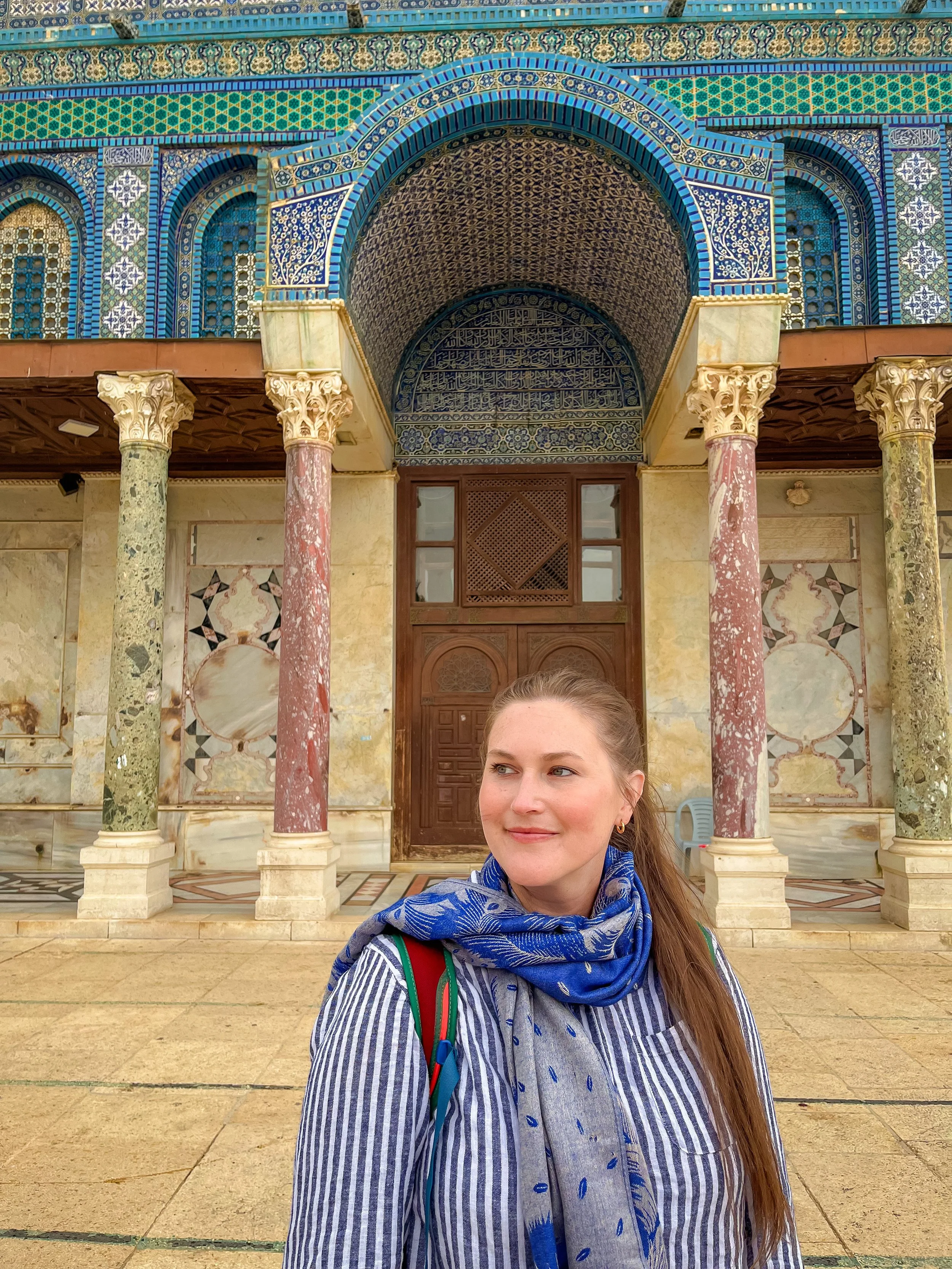Anavah: The Humility of Our Messiah
Four years ago, I signed up for a Zoom Hebrew class with Anna Beth. Some of you might have been my classmates! Our brave group decided to learn a new skill in the midst of the COVID-19 pandemic. While the rest of the world was deep into Netflix or sourdough bread making, we were online battling our pride, trying to remember which Hebrew letter sounded like “ah” versus “bah.” Even the most basic, beginner level Hebrew is humbling. We all moved through the lessons, often feeling like children learning to speak for the first time. During these Hebrew 101 classes, God deepened my love for the Jewish people.
The end of the year drew closer, and with it our final few classes. As Hanukkah approached, we learned the history and significance of the Feast of Dedication, also called the Festival of Lights. Until that point, I had always equated Hanukkah with Christmas. It is so much more! My journey into the Jewish roots of my faith began. I bought an inexpensive Hanukkiah (Hanukkah menorah or candelabra), a box of candles, and a messianic Hanukkah devotional.
The first night of Hanukkah 2020, I lit the candles alone in my tiny Statesboro apartment, singing the blessings in messy, imperfect Hebrew. Participating in something that Jesus himself celebrated (see John 10) was an emotional experience. I felt his presence in my apartment that night as God offered me a chance to connect with him in a profoundly new way.
Anavah: Divine Humility
While reading the Hanukkah devotional, I came across a new Hebrew word: anavah (pronounced ah-nah-VAH). Simply defined it means “humility.” However, one of the lovely aspects of the Hebrew language is that all words carry deeper meaning. Anavah is not just an absence of pride. It is knowing exactly who you are and who God created you to be. When one is living a life of anavah, they are occupying their God-given place in the world.
Anavah stems from a Hebrew root which means “to respond or answer.” When turned towards God, anavah prevents us from overestimating or downplaying our abilities because we realize that everything we have comes from the Lord.
Living a life of anavah should be important to us all. Serving God in love and obedience and sharing the good news of Jesus with those I encounter is my goal in life. One can only do this effectively with anavah: true humility.
For a few years, I wore a simple bracelet engraved with this single Hebrew word. The bracelet was a continual reminder that it isn’t about me, but about what God does through me. On a trip to Israel with Light of Messiah last year, I decided to get a permanent reminder of anavah.
I booked an appointment in the Old City of Jerusalem at one of the oldest tattoo shops in the world, run by the same family of Coptic Christians for nearly 700 years. While I understand that people have varying perspectives on tattoos, getting a permanent reminder of this word was significant to me. Above the Hebrew characters ayin-nun-vav-hey (which spells anavah), stands a small lamb holding a victory banner with a cross (see below).
This tattoo, in such a visible place on my wrist, has led to many conversations with Jewish people! These discussions are always a beautiful reminder that God can and will use anything to draw people to him, even a tattoo. Jewish people often see the Hebrew and stop to read what it says. I’ve had multiple opportunities to share about true, biblical humility simply because people are curious. Besides noticing the Hebrew, Jewish people also ask about the accompanying lamb, which opens the door for me to share about my faith in Yeshua, the humble and meek Lamb of God.
Anavah in the Incarnation
The Apostle John tells us that Jesus was in the beginning with God, and that through him all things were made (Jn 1:1-3). His love for us was so great that he chose to take on a human frame and dwell among us (1:14). The Savior of the world, God incarnate, dealt with the same trials and temptations that all of humanity faces.
Jesus is the perfect example of a life of anavah. He was betrayed by his friends and his people. Yet, he willingly went to the cross for us. He took on all of our sins so that we might have eternal freedom. Jesus knew who he was and what his mission was. And he didn’t turn away from it. Paul says it well in his letter to the Philippians:
“[Christ Jesus], being in very nature God, did not consider equality with God something to be used to his own advantage; rather, he made himself nothing by taking the very nature of a servant, being made in human likeness. And being found in appearance as a man, he humbled himself by becoming obedient to death—even death on a cross!” Phil 2:6-8
Jesus was born to poor, Jewish parents who faced backlash over the nature of his conception. He wasn’t born in a safe, warm house. Instead, his first earthly cries were heard by sheep and donkeys. Yeshua had no crib, merely a manger, a feeding trough for animals. What a picture this paints. The Son of God, from whom all things were made, had the most humble birth imaginable. He bore our griefs and carried our sorrows, was oppressed and afflicted, and yet he “did not open his mouth” (Isaiah 53). Exhibiting perfect anavah, he brought his light into our dark world.
Anavah Brings Light
The true light, which gives light to everyone, came into the world (John 1:9). John creates a beautiful picture with his words. The world was a dark room. Then, on one ordinary evening, a match was struck and a candle was lit. Light entered the world in the form of a tiny baby born to a young, Jewish couple. Humble beginnings for the God who simply spoke the world into existence.
The lighting of the Hanukkah candles is a simple way to commemorate and understand this concept. Funnily enough, this year Hanukkah begins on Christmas Day! (On the Jewish calendar it falls on the 25th of Kislev every year). While the events of Hanukkah occurred around 165 years before the birth of Jesus, we can see him very clearly in the lighting of the Hanukkiah (Hanukkah menorah).
There are eight branches on the Hanukkiah with an additional ninth candle set apart. The middle or “set apart” one is the single candle that is used to light the others every night. This special candle is called the shamash (shah-MOSH). In Hebrew, this word means “helper” or “servant.” Jesus is the greatest servant. The Son of Man did not come to be served, but to serve, and to give his life as a ransom for many (Mark 10:45).
The shamash gives light to all of the other candles. In the same way, Jesus brings light to all of us. “For God, who said, ‘Let light shine out of darkness,’ has shone in our hearts to give the light of the knowledge of the glory of God in the face of Jesus the Messiah” 2 Cor 4:6.
May God help all of us to walk in humility - an important part of how we share the light of Messiah Yeshua! Following his example, let us “do nothing out of selfish ambition or vain conceit. Rather, in humility value others above yourselves, not looking to your own interests but each of you to the interests of the others. In your relationships with one another, have the same mindset as Messiah Jesus.” Phil 2:3-5
As you celebrate this holiday season with loved ones, may God fill you with peace and joy. Whether you’re celebrating Advent, decorating a Christmas tree, or lighting the Hanukkah candles, remember the tiny baby born in Bethlehem: Jesus, the humble lamb and the light of the world.
By Mariah Charnock
Community Engagement Coordinator



